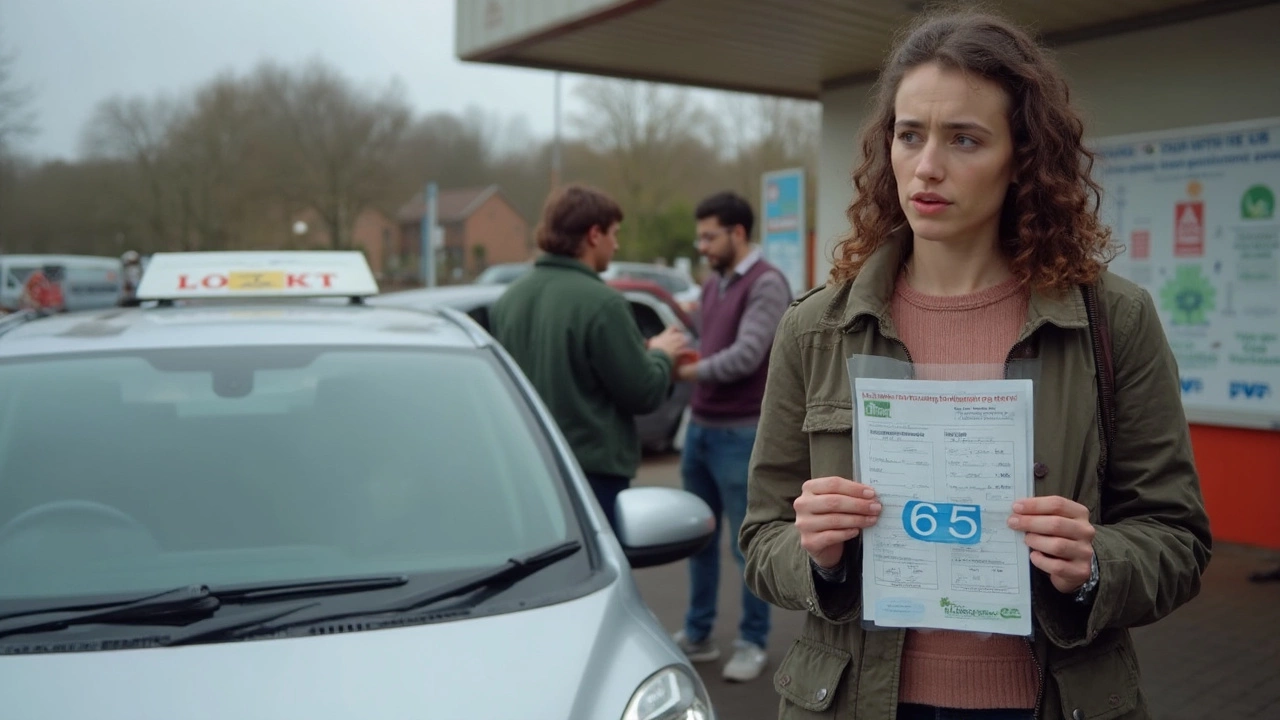How to Book Your Driving Test Quickly and Stress‑Free
Got your provisional licence and ready to hit the road? The first real hurdle is booking the test. It sounds simple, but many learners hit roadblocks that waste time and money. Below you’ll find a clear, step‑by‑step plan that gets you a slot without the usual headaches.
Step 1: Prepare Your Documents and Payment
Before you log in to the DVSA website, make sure you have your provisional licence number, a valid UK driving licence (or ID), and a credit/debit card ready. The booking fee is £62 for a car test in England, Wales, and Scotland, so have the exact amount handy. Having everything in front of you stops you from scrambling mid‑booking and losing your spot.
Step 2: Choose the Right Test Centre and Time
Not all centres have the same availability. If you live near a big city, you’ll face more competition, while rural centres often have open slots weeks ahead. Look at the centre’s average pass rate – a higher rate can boost confidence, but don’t let it dictate everything. As for timing, early mornings on Tuesdays and Wednesdays tend to be less busy. Booking at these times gives you a better chance of a calm examiner and smoother traffic.
Once you’ve selected a centre, pick a date that gives you enough practice time. Most experts recommend at least 20–30 hours of driving plus a few mock tests before the real deal. If you’re cutting it close, consider booking a provisional slot and then swapping it later when you feel ready.
Step 3: Complete the Online Form
Log into the official booking portal (you’ll need your DVA number). Fill in the licence details, select “Car – Manual” or “Car – Automatic” as needed, and confirm the date. Double‑check the address of the test centre – a small typo can send you to the wrong location on test day.
After you submit, you’ll get a confirmation email with a reference number. Print it out or save it on your phone. The email also contains details on what to bring on the day, including your provisional licence and a valid theory test pass certificate.
Step 4: Rescheduling and Cancellations
Life happens. If you need to change the date, you can do it up to three working days before the test without a fee. Beyond that, you’ll lose the original payment and pay again for the new slot. Keep an eye on the cancellation policy; some centres release slots quickly, so act fast if you see an opening.
Tip: Set a calendar reminder for the last day you can cancel without penalty. This avoids surprise charges and gives you a safety net if you’re not ready.
Step 5: Day‑Of Checklist
Arrive 15 minutes early. Bring your provisional licence, the booking confirmation, and a vehicle that meets the test standards (road‑worthy, tax‑paid, insurance‑covered, and with a working seat belt). If you’re using a car with a different transmission than you practiced on, let the examiner know – they’ll adjust the test accordingly.
Stay relaxed, breathe, and remember the examiner is there to see if you can drive safely, not to trip you up. A quick review of your mock test notes right before you go can boost confidence.
Booking your driving test doesn’t have to be a nightmare. Follow these steps, pick the right centre and time, and you’ll be on the road to your licence in no time.
- July 23 2025
- 0 Comments
- Rowan Cavendish
Test Booking: How to Book and Prepare for Your Driving Test
Everything you need to know about test booking—from finding a slot to acing your driving test. Tips, myths busted, and step-by-step guidance.
- June 12 2025
- 0 Comments
- Rowan Cavendish
Is 65 a Good Driving Score? What It Means for Your Test
Curious if a score of 65 on your driving test is good enough to pass? This article breaks down what a 65 means in real terms, how scores get calculated, and why it might be just below the mark in some places. We also look into tips for booking your test and boosting your score. Get straightforward facts and real-life advice—no confusion, just answers.
- February 26 2025
- 0 Comments
- Rowan Cavendish
Major Faults in a Driving Test: Key Things to Avoid
Understanding major faults in a driving test can make the difference between passing and failing. A major fault indicates a serious mistake that poses a threat to safety. Avoiding these mistakes requires focus and preparation. This article dives into common errors and provides tips on how to steer clear of them during your test.
- Driving Lessons (42)
- Driving Test Tips (34)
- HGV Training (32)
- Driving Test Booking (28)
- Driving Licence Renewal (26)
- Driving Theory Test (21)
- Intensive Driving Course (19)
- Pass Plus Course (15)
- Driving Tips (15)
- Driver Licensing (14)
Categories
- February 2026 (4)
- January 2026 (13)
- December 2025 (15)
- November 2025 (13)
- October 2025 (21)
- September 2025 (5)
- August 2025 (8)
- July 2025 (30)
- June 2025 (30)
- May 2025 (30)
- April 2025 (31)
- March 2025 (30)
Archives
- driving lessons
- driving test
- driving tips
- driving test tips
- intensive driving course
- HGV training
- learn to drive
- driving theory test
- driver training
- pass driving test
- driving test booking
- HGV driving
- road safety
- Virginia driving test
- driving license renewal
- Virginia driver's license
- learner drivers
- safe driving
- driving license
- learning to drive



